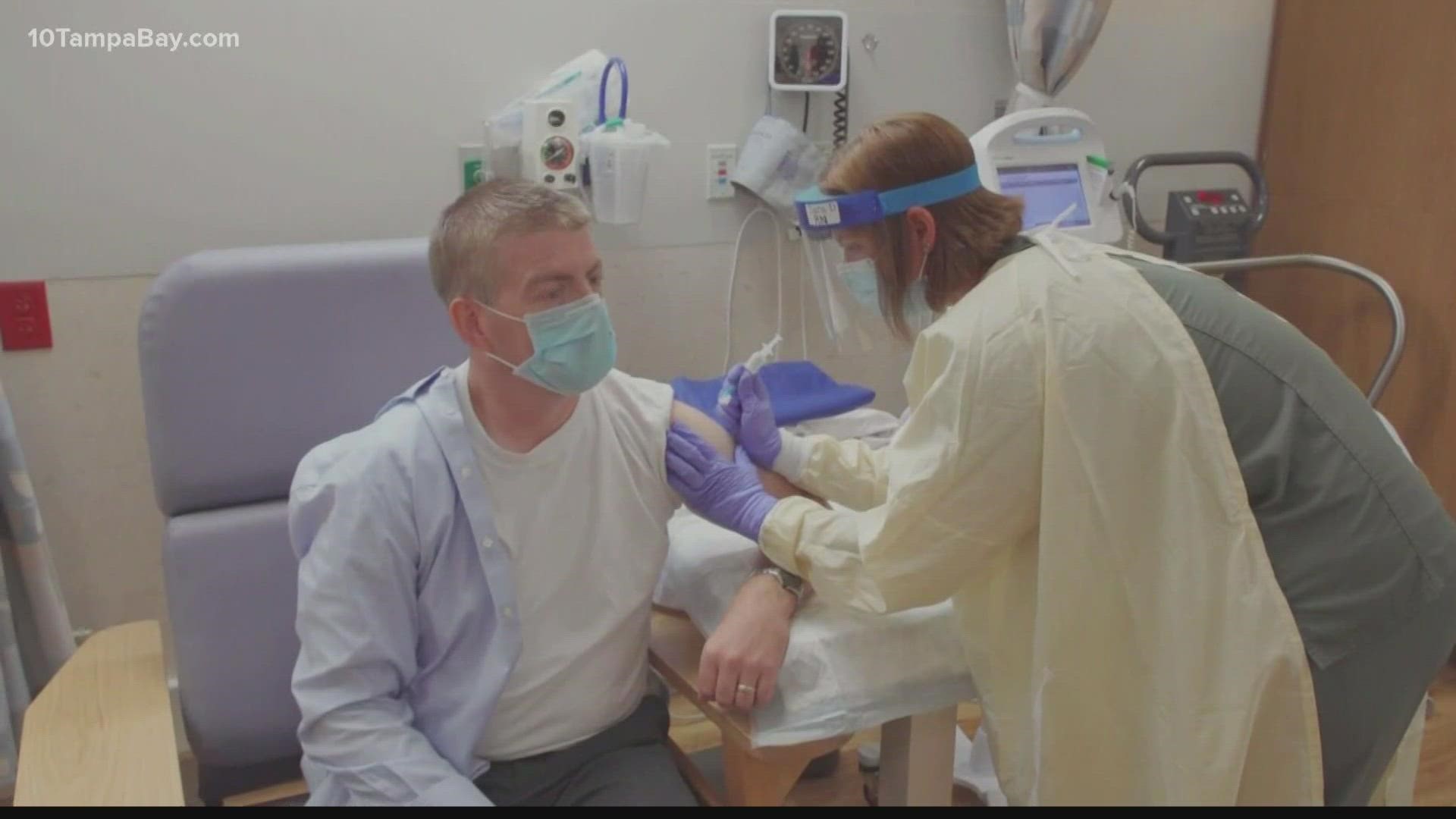JACKSONVILLE, Fla. — As Florida continues to see record-breaking numbers of COVID-19 cases and hospitalizations, Gov. Ron DeSantis is furthering his focus on people who are testing positive for the virus.
The governor announced during a news conference Thursday from Jacksonville that the state is establishing a rapid response unit to help bring in more monoclonal antibody treatments.
An antibody treatment, such as Regeneron, has made headlines recently for its ability to help some COVID-positive people feel better faster.
DeSantis explained that while data shows that the COVID-19 vaccine decreases the chances of being admitted to the hospital or experiencing severe symptoms, some people are still testing positive. Before people could end up in the hospital, an antibody treatment could help to make people feel better.
He said that the majority of people currently hospitalized for COVID-19 are unvaccinated.
“I do think that this is probably the best thing we can do to reduce the number of people that require hospitalization," DeSantis said.
DeSantis said that eventually, the state plans to bring mobile units with the treatment to areas of the state where there are gaps in access, as well as bring in strike teams to bring the treatment into nursing homes.
The governor said he believes monoclonal antibody treatment needs to become the standard of care for COVID-19 symptoms, rather than just for emergency use.
DeSantis said he also plans to eventually make the treatment available by appointment, instead of just referral like it is currently. The Florida Department of Health has a link to facilities offering the treatment on its website.
So what exactly is the monoclonal antibody treatment?
Dr. Kami Kim, Division Director of Infectious Diseases & International Medicine at USF Health Morsani College of Medicine, says it neutralizes the virus and works to shorten the duration of symptoms and avoid hospitalization.
It's most commonly given through an IV but can also be given through injection, according to the governor.
But Kim says the catch is to do the treatment early, so it's a good idea to talk to your doctor about it as soon as you test positive.
You also may have heard of the treatment before, because it's the same one former President Donald Trump received when he had COVID-19.
Right now, monoclonal antibody treatment is still under Emergency Use Authorization from the FDA.

